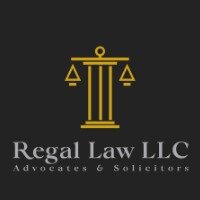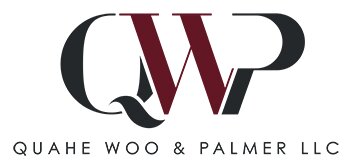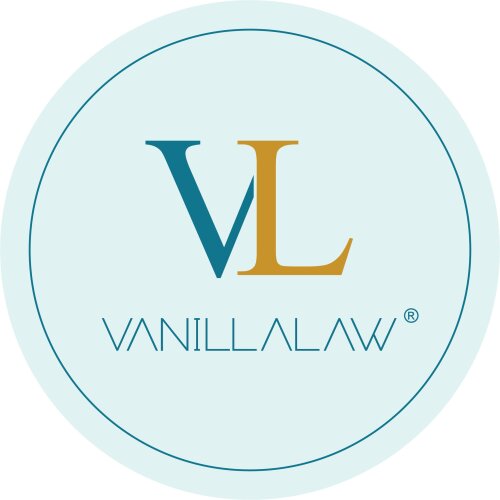Best Sanctions & Export Controls Lawyers in Singapore
Share your needs with us, get contacted by law firms.
Free. Takes 2 min.
Or refine your search by selecting a city:
List of the best lawyers in Singapore
About Sanctions & Export Controls Law in Singapore
Sanctions and export controls are important areas of law in Singapore that deal with the regulation of trading goods, technology, and services across Singapore's borders. These laws ensure Singapore complies with its international obligations, helps maintain national security, and prevents the misuse of strategic goods or dual-use items that could be utilized for harmful purposes such as terrorism or weapons proliferation. The legal framework covers not only what can be traded but also with whom, placing restrictions on transactions with certain countries, entities, or individuals.
Why You May Need a Lawyer
Legal issues involving sanctions and export controls can be complex and carry significant consequences, including hefty penalties, criminal liability, reputational damage, and disruption to business operations. You might need a lawyer if:
- You are part of a business involved in the import, export, transshipment, or brokerage of goods, technology, or services with international partners.
- You work in a sector dealing with strategic or dual-use items, such as electronics, chemicals, aerospace, or information technology.
- You have received inquiries from Singaporean authorities regarding your company’s export or shipping activities.
- You are uncertain whether your goods or services fall under current sanctions or controls.
- You face allegations of breaching export control regulations or sanctions laws.
- You require assistance obtaining the necessary licenses and permits for exports or reexports.
- You seek to assess and manage compliance risks in your supply chain or business operations.
In these situations, a qualified lawyer can offer guidance, help you interpret the laws, resolve disputes, and minimize your legal and business risks.
Local Laws Overview
Several key statutes and regulations in Singapore pertain to sanctions and export controls. The main legal instruments include:
- Strategic Goods (Control) Act - Regulates the transfer, brokerage, and movement of military and dual-use strategic goods, technology, and related services.
- United Nations Act - Implements United Nations Security Council sanctions, providing the authority for regulations targeting specific countries, entities, and activities.
- Regulation of Imports and Exports Act - Governs the licensing and declaration of imports and exports, and enforcement of prohibitions and restrictions.
- Customs Act - Governs customs procedures and provides enforcement powers for the interdiction of illegal or controlled trade.
Singaporean authorities pay close attention to compliance, with strict requirements for declaring goods, obtaining relevant permits, and avoiding prohibited transactions. Companies and individuals are responsible for understanding whether their goods or partners are subject to restrictions. Noncompliance can result in prosecution, fines, forfeiture of goods, or imprisonment.
Frequently Asked Questions
What are "strategic goods" under Singapore law?
Strategic goods refer to items, technology, or software that have military applications or can be used for both civilian and military purposes. These include weapons, high-tech equipment, chemicals, and certain software or technology transfers.
Are there countries or entities I cannot do business with from Singapore?
Yes. Singapore enforces both UN sanctions and its own designated restrictions. These can include bans or limitations on transactions with entities in countries like North Korea, Iran, and others subject to UN Security Council sanctions.
Do I need a license to export controlled goods from Singapore?
Yes. If you are exporting, transshipping, or brokering strategic or controlled goods, technology, or services, you usually need to apply for and obtain a license.
What counts as "technology transfer" under these laws?
Technology transfer covers not only physical shipments but also electronic transmissions, such as emailing technical data, posting information online, or providing technical assistance to foreign persons.
Can sanctions apply to services as well as physical goods?
Yes. Sanctions and controls can also cover the provision of financial services, technical assistance, or other types of support involving restricted countries, individuals, or goods.
What are the penalties for violating Singapore’s sanctions or export controls laws?
Penalties can be severe, including significant fines, criminal charges, imprisonment, forfeiture of goods, cancellation of permits, and reputational damage to individuals and organizations.
Are individuals or only companies subject to these laws?
Both individuals and companies can be held responsible and prosecuted for breaches, including company officers, directors, employees, and related persons.
How do I know if my product falls under export control regulations?
You should check Singapore’s Strategic Goods Control List and other relevant schedules. A legal adviser or trade compliance expert can help you interpret these classifications based on the technical details of your product.
Is it possible to get exemptions or waivers from export restrictions?
In some cases, you may be able to apply for exemptions or special licenses, but this is determined on a case-by-case basis by the relevant Singapore authorities.
What should I do if contacted by Singapore authorities about a potential breach?
You should contact a qualified sanctions and export controls lawyer immediately. Respond professionally, do not destroy documents, and cooperate as advised by your legal counsel.
Additional Resources
If you need further information or help, consider contacting the following agencies and organizations:
- Singapore Customs - The main authority overseeing risk assessment, compliance, permits, and enforcement related to imports and exports.
- Ministry of Trade and Industry (MTI) - Issues certain announcements and policies on export controls and related trade restrictions.
- Ministry of Foreign Affairs (MFA) - Publishes details on Singapore’s implementation of United Nations Security Council sanctions.
- Professional Trade Associations - Groups such as the Singapore International Chamber of Commerce can offer compliance guidance and updates.
- Trade Compliance Consultants - Many firms in Singapore provide specialized advice on legal and practical aspects of export controls.
Next Steps
If you believe you need legal help in the area of sanctions and export controls in Singapore, consider taking the following actions:
- Gather all documentation relating to your proposed or past transactions, including permits, correspondence, and product details.
- Conduct a preliminary assessment of whether your goods, technology, or services may be subject to controls or restrictions.
- Prepare a list of your questions and specific concerns to present to a lawyer.
- Contact a law firm or qualified legal practitioner with expertise in Singapore’s sanctions and export controls laws.
- If contacted by authorities or facing investigation, engage a lawyer as soon as possible before responding or taking any substantive actions.
Consulting with a knowledgeable lawyer early in the process is the best way to protect your interests and ensure compliance with Singapore’s legal requirements.
Lawzana helps you find the best lawyers and law firms in Singapore through a curated and pre-screened list of qualified legal professionals. Our platform offers rankings and detailed profiles of attorneys and law firms, allowing you to compare based on practice areas, including Sanctions & Export Controls, experience, and client feedback.
Each profile includes a description of the firm's areas of practice, client reviews, team members and partners, year of establishment, spoken languages, office locations, contact information, social media presence, and any published articles or resources. Most firms on our platform speak English and are experienced in both local and international legal matters.
Get a quote from top-rated law firms in Singapore — quickly, securely, and without unnecessary hassle.
Disclaimer:
The information provided on this page is for general informational purposes only and does not constitute legal advice. While we strive to ensure the accuracy and relevance of the content, legal information may change over time, and interpretations of the law can vary. You should always consult with a qualified legal professional for advice specific to your situation.
We disclaim all liability for actions taken or not taken based on the content of this page. If you believe any information is incorrect or outdated, please contact us, and we will review and update it where appropriate.
Browse sanctions & export controls law firms by city in Singapore
Refine your search by selecting a city.















